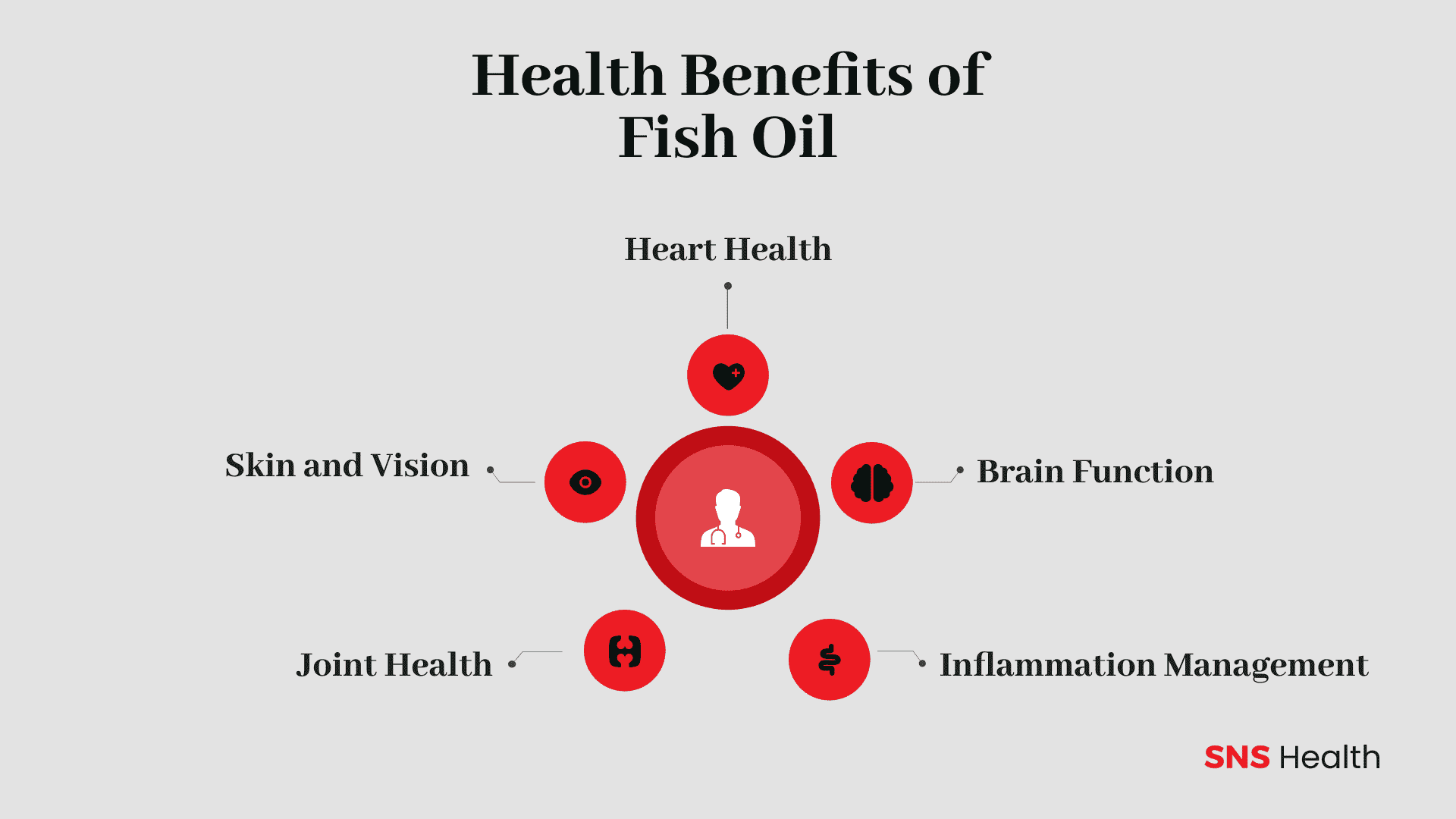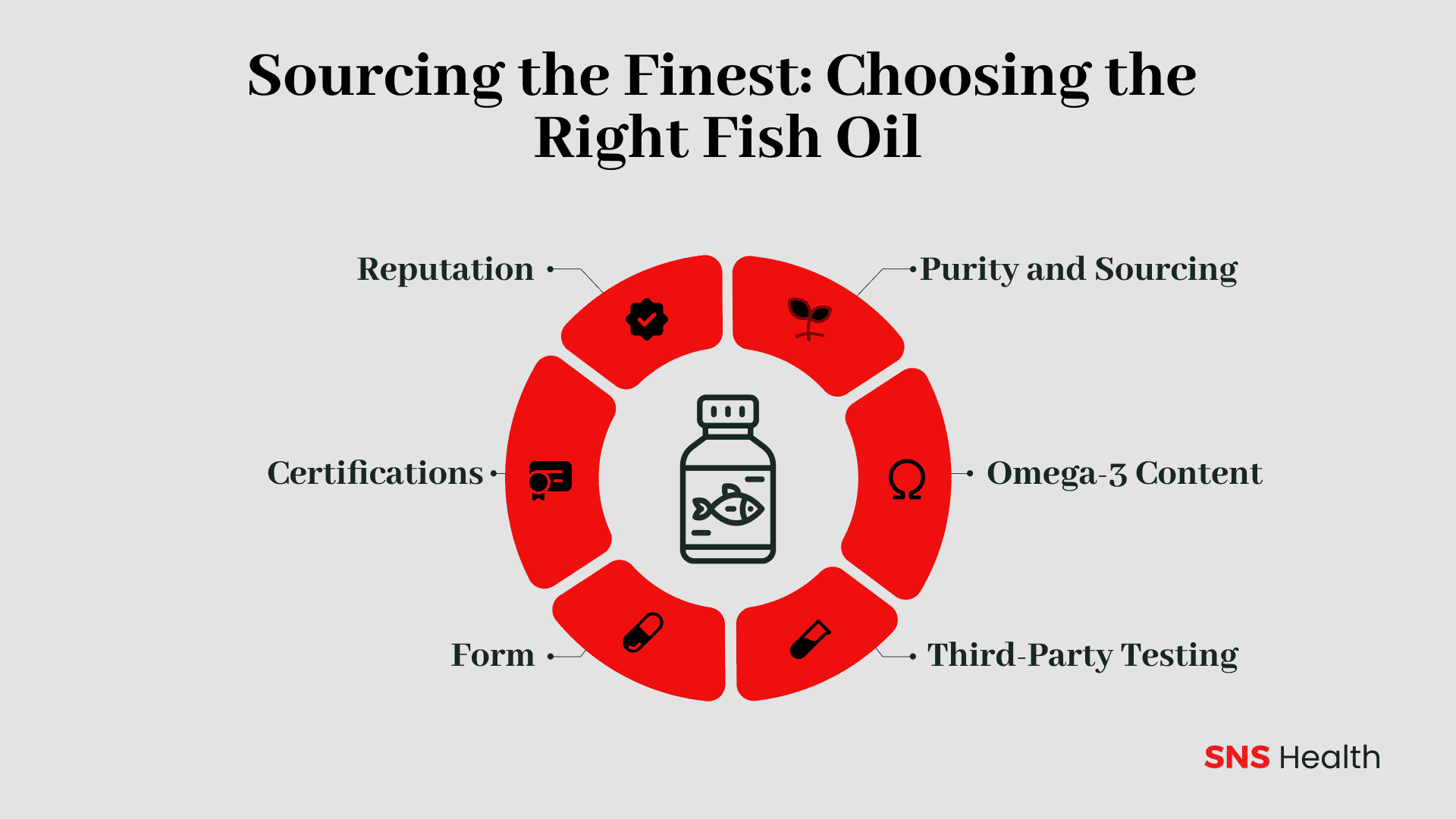Fish oil, often touted as a health wonder, is rich in omega-3 fatty acids, making it a popular dietary supplement. Fish oil has gained significant attention in recent years for its potential health benefits. The popular dietary supplement is rich in omega-3 fatty acids, which are essential for various bodily functions. In this comprehensive guide, we'll explore the secrets of fish oil, its benefits, sources, recommended dosages, and more.
What Is Fish Oil?
Fish oil is a natural oil extracted from the tissues of oily fish, such as salmon, mackerel, herring, and sardines. It is renowned for its high concentration of omega-3 fatty acids, which are polyunsaturated fats that play a vital role in supporting overall health. These fatty acids, including EPA (eicosapentaenoic acid) and DHA (docosahexaenoic acid), are crucial for maintaining optimal health and preventing various diseases. The amount of omega-3s in fish oil ranges from 18-31% - including both EPA and DHA, however, it varies between different types of fish.
The Importance of Omega-3 Fatty Acids
At the heart of fish oil's magic lies its rich content of omega-3 fatty acids. These essential nutrients are pivotal for maintaining optimal health, playing a significant role in various bodily functions. Omega-3s are renowned for their anti-inflammatory properties, supporting heart health, brain function, and even reducing the risk of chronic diseases. Omega-3 fatty acids are essential for our well-being, but our bodies cannot produce them efficiently. We must obtain them from our diet, and fish oil is an excellent source.
Apart from diet, we can obtain Omega-3 from supplements like NutraSea Omega-3 Liquid Gels, Herbaland Vegan Omega-3 Gummies For Adults, Jamieson Salmon & Fish Omega-3 Complex, Webber Naturals Omega-3, and more.
Health Benefits of Fish Oil

Heart Health: Omega-3s, specifically EPA (eicosapentaenoic acid) and DHA (docosahexaenoic acid), are renowned for their cardiovascular benefits. They help reduce triglycerides, lower blood pressure, and decrease the risk of heart disease. These fatty acids are like superheroes for your heart, promoting its proper function and reducing the risk of cardiovascular events.
Brain Function: DHA, a major component of the brain, is crucial for cognitive function and neurodevelopment. It supports brain cell membranes, aids in neural communication, and has been linked to improved focus, memory, and mental clarity. Including fish oil in your diet can be a smart move to support your brain health.
Inflammation Management: Chronic inflammation is at the root of many chronic diseases. Omega-3s possess potent anti-inflammatory properties, which can help alleviate symptoms in conditions like arthritis and may reduce the risk of inflammatory disorders.
Joint Health: Fish oil has shown promise in maintaining joint health, particularly in individuals with conditions like rheumatoid arthritis. The anti-inflammatory effects of omega-3s can contribute to reducing joint pain and improving overall mobility. Additionally, they're beneficial for maintaining proper eye health and may lower the risk of age-related macular degeneration.
Skin and Vision: Omega-3s are essential for maintaining healthy skin, promoting moisture retention, and reducing the risk of skin conditions. Additionally, DHA is present in the retina of the eye, making fish oil beneficial for maintaining proper vision health.
Fish Oil Prescription Vs Supplement
So, the FDA (the folks who keep an eye on your health) have given a thumbs-up to certain fish oil products as prescription meds. These are controlled and meant to tackle high triglyceride levels – a specific kind of fat in your blood. The fish oil you buy as supplements isn't the same as these prescription meds. The prescription ones are like the superheroes, with exact amounts of EPA and DHA (the good stuff in fish oil) to target those triglycerides.
Also, you should not consider Fish oil as other oils, like cod liver oil, flaxseed oil, krill oil, or shark liver oil. Each of these has its unique role in the health story:
- Cod Liver Oil: Nature's multivitamin, with vitamins A, D, and omega-3s (EPA and DHA). NutraSea Cod Liver Oil + Vitamin D, Jamieson Cod Liver Oil, Webber Naturals Cod Liver Oil Vitamin A Vitamin D 1250 IU/400 IU, and more are some of the best examples of Cod liver oil supplements in the current market.
- Shark Liver Oil: This oil comes with a special compound for your immune system.
- Flaxseed Oil: Packed with ALA, a plant-based omega-3. Webber Naturals Flaxseed Oil Cold Pressed and Jamieson Flaxseed Oil are two of the highly preferred Flaxseed supplements available at SNS Health.
- Krill Oil: From tiny krill, with EPA, DHA, and an antioxidant. Some of the best Krill Oil supplements include Trophic Krill Oil, Jamieson Omega Complete Pure Krill Oil Extra Strength, Organika Krill Oil, and others.
Sourcing the Finest: Choosing the Right Fish Oil

Subpar fish oil may lack the purity and potency required to deliver the intended benefits, making your selection of paramount importance.
Purity and Sourcing: Look for products sourced from cold-water, fatty fish like salmon, mackerel, or sardines. These fish tend to have higher omega-3 content. Additionally, ensure the fish oil undergoes molecular distillation, a process that removes contaminants such as heavy metals and PCBs, ensuring a pure and safe product.
Omega-3 Content: The omega-3 fatty acids EPA and DHA are the stars of the show. A high-quality fish oil supplement should clearly display the EPA and DHA content per serving on the label. This transparency helps you gauge the potency of the product.
Third-Party Testing: Trustworthy brands invest in third-party testing to validate the purity and quality of their products. Look for certifications from reputable testing organizations, as this adds a layer of credibility to the product's claims.
Form: Fish oil supplements come in various forms, including capsules and liquids. Choose the form that suits your preferences and lifestyle. SNS Health has a wide range of fish oil supplements to choose from.
Certifications: Look for certifications from organizations like the International Fish Oil Standards (IFOS) program. These certifications indicate that the product meets stringent quality and purity standards.
Reputation: Research the brand's reputation and read reviews from consumers and experts. A well-regarded brand is more likely to provide a high-quality product.
Navigating the Seas of Dosage and Usage
Fish oil supplements have often been taken by adults in doses of up to 6 grams daily, through the mouth, for around 12 weeks. A fish oil capsule typically contains 180-465 mg of EPA and 120-375 mg of DHA. These are the superstar compounds in fish oil that bring the health benefits. Fish oil is also available as prescription drugs with names like Lovaza, Omtryg, and Epanova. It's crucial to consult with a healthcare professional before starting any new supplement regimen. Keep in mind that a balanced diet, regular exercise, and a healthy lifestyle complement the advantages of fish oil.
A Word of Caution: Risk and Possible Side Effects
While fish oil is generally considered safe for most people, some may experience mild side effects such as fishy aftertaste, digestive discomfort, or an increased risk of bleeding (especially at high doses). Individuals with certain health conditions, like bleeding disorders or allergies to fish, should exercise caution and seek medical advice.
Fish oil's source is fish, and some fish species can accumulate high levels of mercury and contaminants due to environmental pollution. To mitigate this risk, select reputable brands offering high-quality fish oil supplements. These undergo rigorous testing to ensure purity and adhere to industry standards.
While fish oil is well-tolerated by many, some may face digestive discomfort due to its concentrated omega-3 content. High doses of omega-3s can lead to fishy aftertaste, burping, and mild gastrointestinal discomfort.
- Medication Interactions: Consult a healthcare provider if taking blood thinners like warfarin, as fish oil may increase bleeding risk.
- Medical Condition Caution: Exercise care if you have bleeding disorders, allergies to fish or shellfish, or diabetes.
- Pregnancy and Breastfeeding: Consult your healthcare provider before using fish oil supplements during pregnancy and breastfeeding.
Fish oil’s omega-3 fatty acids, particularly EPA and DHA, support heart health, brain function, and combat inflammation. By choosing a high-quality supplement, understanding the right dosage, and consulting with healthcare professionals, you can unlock the full potential of fish oil and sail towards a healthier, more vibrant life.
Fish Oil FAQs: Your Questions Answered
Are there any side effects of fish oil supplements?
Fish oil supplements are generally well-tolerated, but some folks might experience fishy aftertaste, burping, or mild stomach issues. To minimize these, start with a lower dose and take your supplement with meals.
Can I get omega-3s from vegetarian sources?
Absolutely! Flaxseed oil, chia seeds, walnuts, and certain algae-based supplements offer plant-based omega-3s. They're a great option for non-fish eaters.
Is fish oil safe for children and pregnant women?
Yes, fish oil can be beneficial for kids and pregnant women due to its omega-3 content. However, it's essential to consult a healthcare provider before adding it to their routine to ensure it's the right fit for their specific needs.









